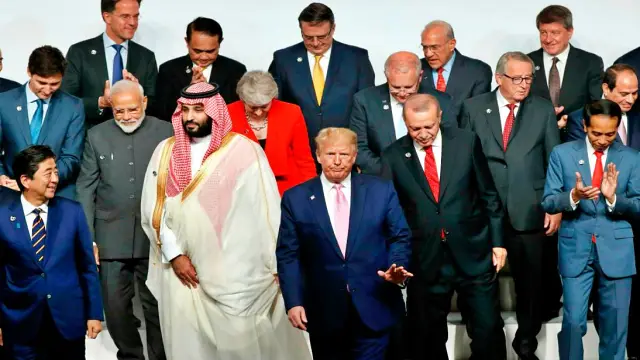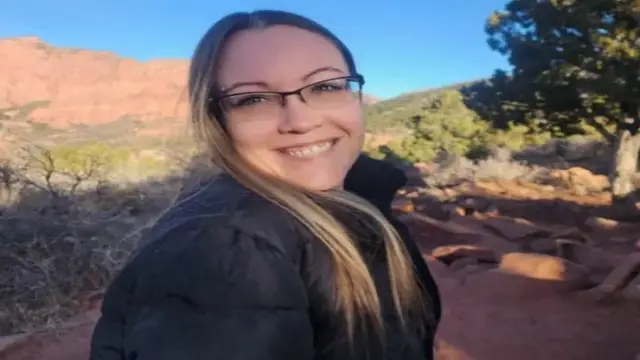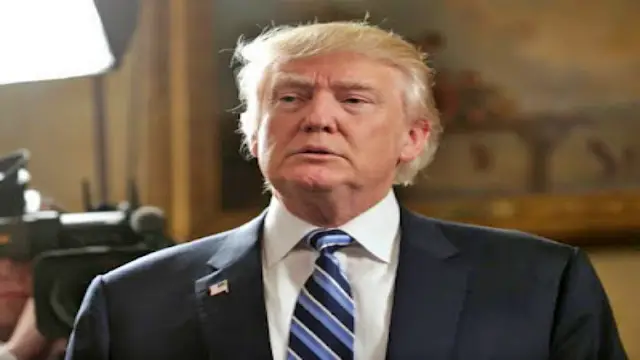The jobs minister, Kelly O’Dwyer, told the prime minister, Scott Morrison, the government could not allow itself to be bullied by the Liberal National party in Queensland.
As weeks before federal budgets go, this one has been strange, in that the budget has barely featured. Normally we’d all be banging on about what is in or out, but everything is too off the rails for the budget to get much of a look-in.
The bizarre saga of One Nation and the unseemly hunt for money from the American gun lobby, followed by Pauline Hanson’s predictably Trumpian response – where the fake protest party responded by screeching about fake news, spies, Islamists and Ita Buttrose – at least had the upside, from Scott Morrison’s perspective, of drowning out fresh instalments of the Coalition’s legacy wars that ran daily on the front page of the Sydney Morning Herald, or the other rolling internal fights.
Morrison has been flat out trying to hold his team together sufficiently to get through next week, the final three sitting days of this parliament, without looking like a rabble, and to propel his troops into the election that will follow hot on the heels of budget week.
Over the past fortnight he has papered over a damaging internal split about energy policy and taxpayer support for coal. The papering over involved promising that someone would look into building a coal plant in north Queensland (but not promising to build it), and inserting one coal upgrade on a shortlist of new power generation projects that might or might not proceed to the next stage – assuming the Coalition wins in May.
Queensland Nationals, who had been muttering darkly about blowing the show if they didn’t get a concrete commitment, got not much comfort from Morrison apart from a head pat and a press release. But they sucked it up and spun it as a crushing victory. George Christensen, back from the Philippines, was quick to pop a meme on his Facebook site, declaring “The LNP will back more coal fired power in Queensland.” I meme therefore I am.
Then there was the vexed problem of what could be done about One Nation preferences, an issue that became more and more vexed the more that was revealed of that extraordinary al-Jazeera sting, aired by the ABC over two nights this week. The more James Ashby, Steve Dickson and Pauline Hanson babbled at distorted, hidden camera angles, lurching between noir and The Big Lebowski, the worse things got for Morrison.
With a major snafu brewing, the prime minister asked Liberals to hang back on Tuesday after the regular cabinet meeting (which had just papered over the energy fracture) to discuss the next fracture: where they should all land on One Nation preferences.
Key people were divided. Peter Dutton, worried about the electoral impact of the Liberals spurning One Nation in Queensland, argued for ambiguity. Kelly O’Dwyer and Simon Birmingham argued forcefully in favour of spurning. O’Dwyer, for good measure, told Morrison the government couldn’t allow itself to be bullied by the Liberal National party in Queensland.
Having read the room, Morrison then set to work trying to persuade the necessary backroom types to agree to a position where Liberals would rank One Nation below Labor on how to vote cards at the coming contest. When he secured that, he went public.
Morrison obviously had to take a public position on preferences, because the alternative was getting kicked to death for cosying up to a far-right fringe group prepared to sell out Australia’s gun control regime for a few dollars from the National Rifle Association. Even before that it was important, as I argued last weekend, for the prime minister to do the right thing.
But Morrison’s One Nation challenge is more significant than a decision about the ranking of preferences in a single electoral contest. The political challenge he faces isn’t procedural, it’s substantive. He needs a strategy to boost the Coalition’s primary vote if he’s to have any chance of holding on to government in May, and the rise of One Nation always depresses the Coalition’s primary vote.
To rise to his political challenge, Morrison has to have the fortitude to go to war with One Nation electorally, and mean it, both because it’s the right thing to do, because playing footsie with extremists in populist’s clothing is morally reprehensible, and because the alternative is death by a thousand cuts.
As well as choosing confrontation, rather than co-option or Coalition-ism, Morrison also has to put forward a policy offering that has some prospect of connecting with that section of the Coalition’s base that is now so angry and alienated from the suboptimal, “we forgot how to be competent” saga that is the Abbott/Turnbull/Morrison government, that the cohort will vote for One Nation just to kick the cat.
Without lapsing into the ridiculous false equivalence debate that various shameless Coalition folks have bowled up in desperation this week during the preferences conversation – in case you missed it this is the claim that the Greens are somehow as bad, or worse, than One Nation (I mean what a bunch of bollocks, get in the bin) – there is something the Coalition can learn from Labor and its attempts to rebuild its primary vote in progressive-on-progressive contests during recent elections.
I repeat again, to avoid any ambiguity, that the Greens are n-o-t One Nation. Not in any universe. But Labor has faced a very similar electoral challenge with the rise of the Greens as the Coalition faces in this election cycle and some previous cycles with One Nation, namely a corrosion of its primary vote.
Coalition strategists will tell you Labor’s Greens problem isn’t really a problem, because about 80% of Greens preferences flow back, but Labor will tell you it has been a significant problem, because the encroachment affects their chances of forming majority governments.
Ten years ago progressive Labor MPs would not have been game to take on the Greens because they would have been punished by their supporters. That’s slowly changed, and Labor has, over the past couple of years, started to muscle up against the Greens in inner-city contests, pursuing direct confrontation, warning progressive people about the costs of lodging a protest vote. This tougher approach was particularly obvious in the Grayndler campaign in the last federal election, and in the Batman byelection. Labor prevailed in both contests.
But success requires more than a bit of situational aggression: being punchy during campaigns. Labor has clawed back some support courtesy of its policy offering, which in many respects is the most progressive since the Whitlam years. The moral of the story is this: boosting your primary vote is not only about launching a situational war on the ground, it’s also giving your disaffected folks something to vote for.
Perhaps Morrison is hoping that some tax cuts for people on low and middle incomes, and possibly some cash payments, in next week’s budget is a downpayment on speaking to the voters inclined to give them a kicking.
This week he has shown some inclination to pursue the primary vote strategy I’m talking about. He’s blasted Hanson and appealed directly to her supporters to vote for the Coalition. Morrison has some prospect of gaining at least some traction with this appeal if he says it frequently enough and means it. Malcolm Turnbull couldn’t have pulled off narrowcasting to that cohort. Wrong salesman.
But to have any hope of success, Morrison’s message will need to be clear and consistent, even principled, dare we say – and that’s difficult when not everyone in your own show is convinced that going to war with One Nation is the answer (as Tuesday’s post-cabinet conversation revealed) and when the National party won’t play ball.
Nationals will muddy Morrison’s message, day in and day out, and that’s not helpful to Liberals.
Nationals have made it clear for much of this year, in their divided and rancorous state after the ignominious end of Project Barnaby, that when it comes to sandbagging it is now every man and woman for themselves, and hang the consequences for others, even if that consequence is inglorious opposition.


















